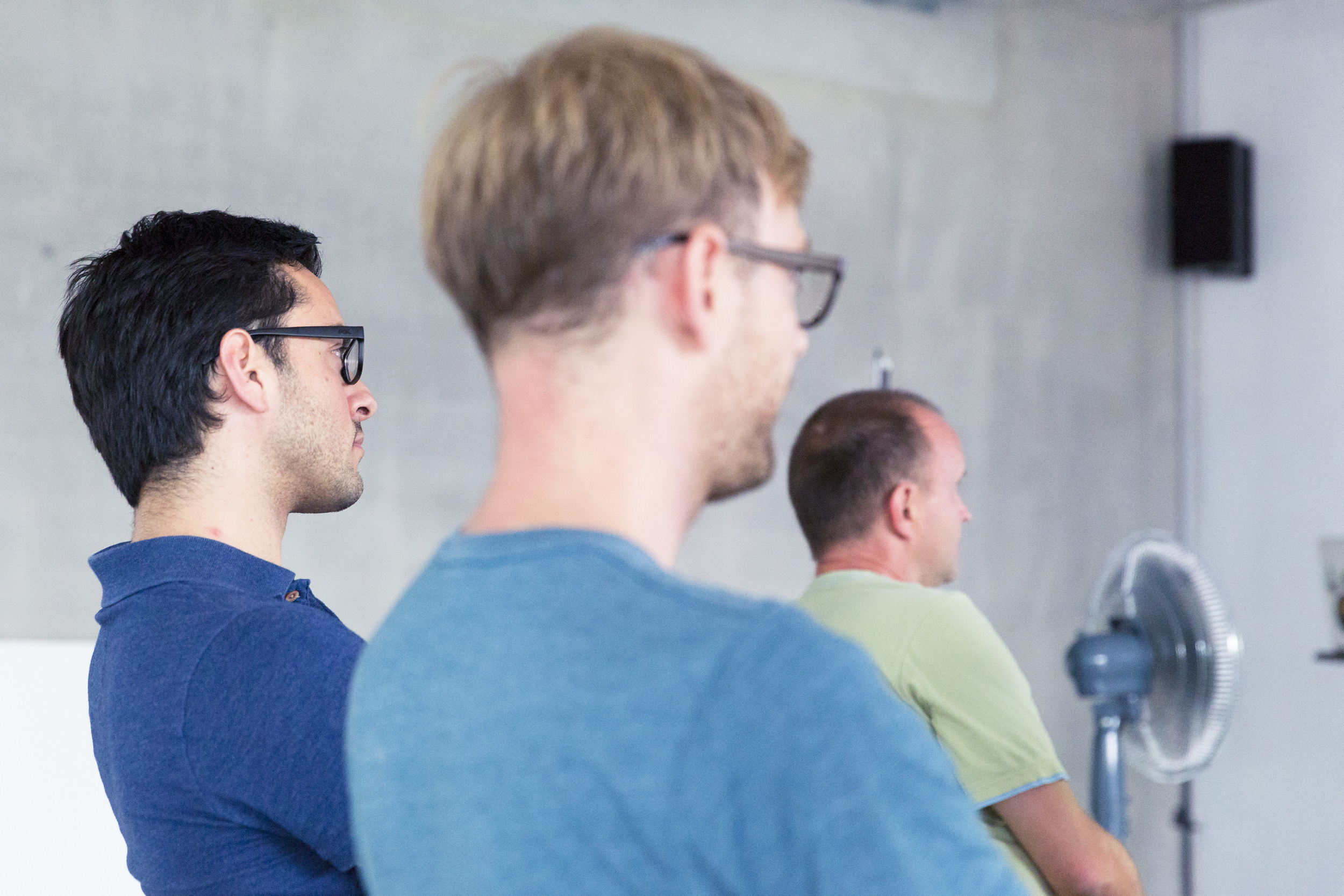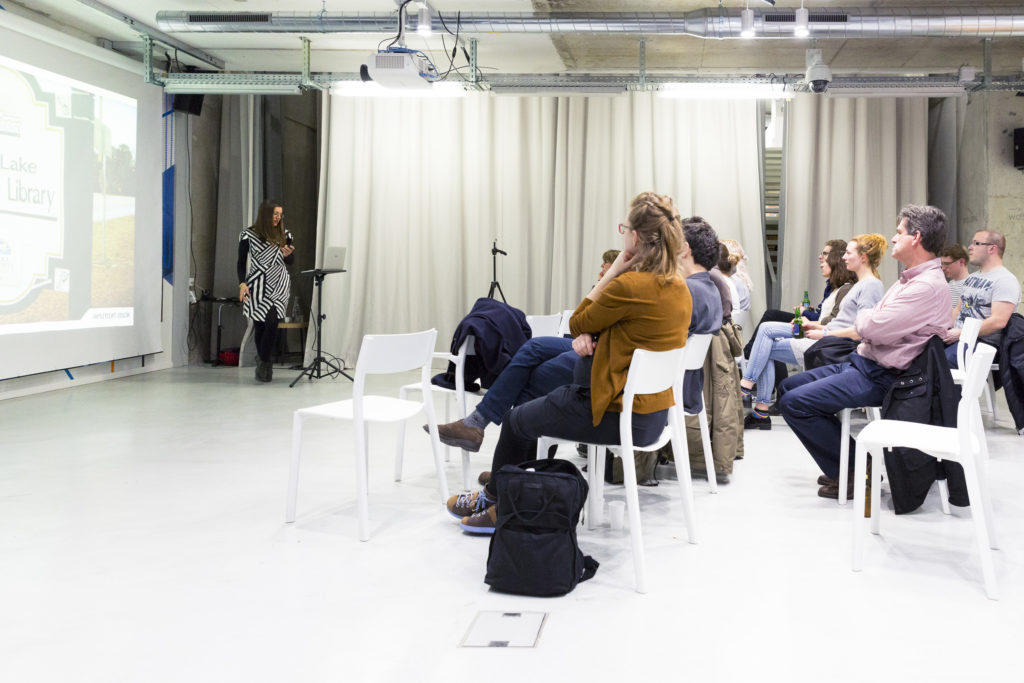You might already know this, but I launched a series of events called Drinks + Tech. It all started 3 years ago with a call from Xavier Bertschy. I’ve never told the story of why and how this happened. Here it is for you.
How did it start?
When I was moving from Amsterdam to Basel in 2015, it started to become clear that I didn’t want to go back to corporate life. I wanted to be a freelancer. To be my own boss.
But I knew that landing in Basel with no personal or professional network would make it hard to find clients and friends. This was clearly a big hurdle.
That’s when Xavier from the Swiss Tech Association asked me if I would be interested in launching the local chapter. He had secured a location and some funds. I just had to find speakers and promote it. Easy, right?
But why do it?
I accepted. It seemed like it would be the perfect opportunity to gather interesting people in a location. I could nurture new relationships over beers and prove my initiative in the local scene.
Plus, I had no experience in event management. So I thought this would be a great opportunity to learn about it.
And it would force me to dig into topics I’m interested in, to go deep and read about the stories and projects of potential speakers. I liked the exploration aspect.
Finding the right speakers
My first task was to find interesting speakers. It turned out to be more complicated than expected. It looks so straightforward when you start out:
- First you have to clearly outline the topic you want to talk about. Easy.
- Then you have to scout for interesting individuals that that might say, “Yeah right, I’ll do it”. But the highest profile / most professional speakers will charge for their work. Fair enough — except that there was no budget provided for this. So I needed to find some B-League players with great potential and good stories. More complicated.
- Next, you have to reach out to these people and convince them to give a talk for free. Easier than you’d expect.
- Then you need to get a written description of their talk and bio. Very complicated… (okay, not always)!
About the last point: this was a pain mostly due to my lack of process. I’ve improved it. Now I’ve transformed it into something that’s super easy and more streamlined.
- Reach out with a tweet or a super short email to trigger interest and “intention yes”.
- Fix dates and send the document detailing all the information we need.
- Publish the information on the website and get it approved by the speaker as early as possible.
Finally, promote the talk.
Spreading the word
This is hard because there are so many other events out there to attend. Competition is fierce. I mean competition in friendly way. It’s just that your target audience sometimes has limited time available to attend all of the events that are vying for their attention.
So you need to convince them that they will get the value they expect out of showing up at yours. But first they need to know about it.
Paper loses
Yes, at the beginning with Swiss Tech Talks, I had some flyers printed. The most time-consuming aspect was distributing them in key locations. However, most “interesting” locations have a “kulturbox” in which you are not supposed to put your own flyers. And if you do it, they disappear the next day. This turned out to be a complete waste of time.
Facebook ads work
Facebook Events and targeted ads require the least effort. And you can reach a good audience with a small advertising budget. It works well for us.
Meetup wins
So far, this is the best channel for promoting the events. We have one of the biggest groups in Basel. Every time we publish an event, it goes out to 1K people. Not bad. Any you get featured in the Meetup Calendar, which has a big reach.
Hosting events
Initially, I was the only one hosting the event. Which is possible for a small event, but not a good strategy overall. If you are busy handling the logistics and organisation, you have no time left for lively discussion with your guests.
Having a pair of additional hands, helped a lot with
- Welcoming the guests and checking tickets.
- Briefing the speakers and fixing the technical issues.
- Shooting photos & sharing them on social networks.
- Taking out the drinks & cutting the pizza.
So a big thank you to Xavier, who helped sometimes when we were at Launchlabs. Now Shane and Fiona from Fluxdock are very valuable assets.
It’s good to be part of a team for this in order to run the events.
Selling tickets vs sponsorship
This is a problem I haven’t solved so far.
Should you charge and how much?
- Or should the event be free and should you have sponsors to cover all of the costs?
- Or could people cover the costs with donations?
We’ve basically experimented with all of the variations. None of them is perfect, in my opinion. This is what I’ve found so far:
- Charging CHF 25 for the events seemed to turn a lot of people off. Attendance was low.
- Donations helped, but they didn’t cover all of the costs. So they’re not a sustainable option.
- The best strategy seemed to be sponsoring. But finding a sponsor requires (a lot of) additional work.
Work in progress.
Spinning off
After one season with the Swiss Tech Association, I wanted to change the direction a bit. The Swiss Tech talks were very Business and Technology focused. But the topics I was interested in were more in the design, art and technological experimentation field.
We parted company in a friendly way. And at the same moment, Joe, our first speaker in Basel, decided to move to the US again. He “offered” me his Coffee & Laptop meetup group. It turned out to be a great foundation to launch the new series of talks.
Drinks + Tech was born.




Leave a Reply